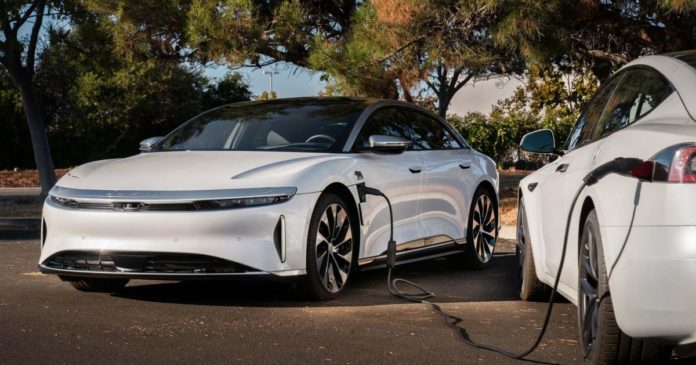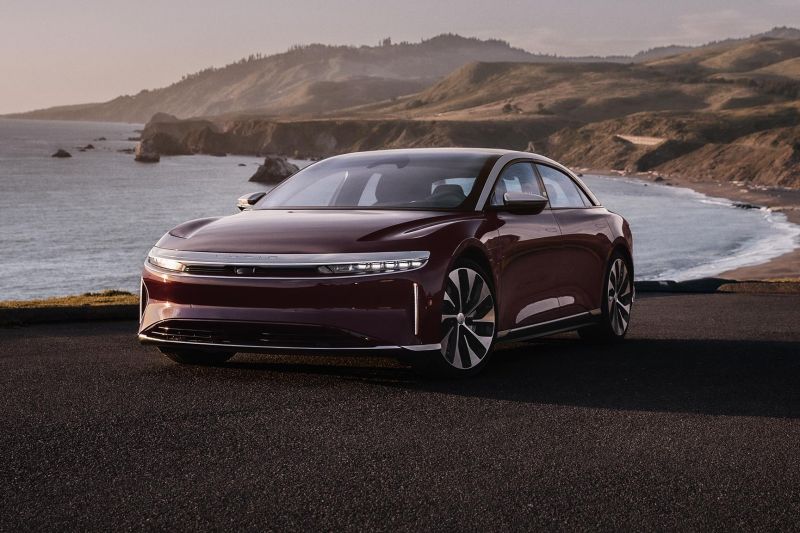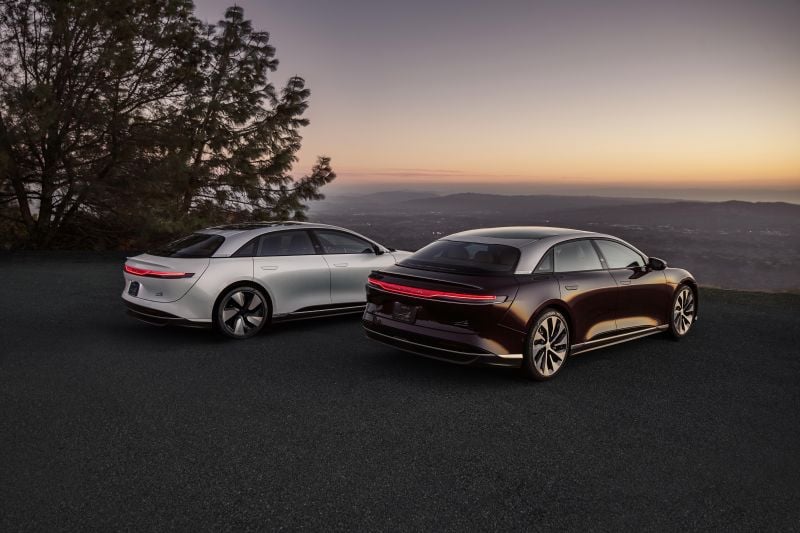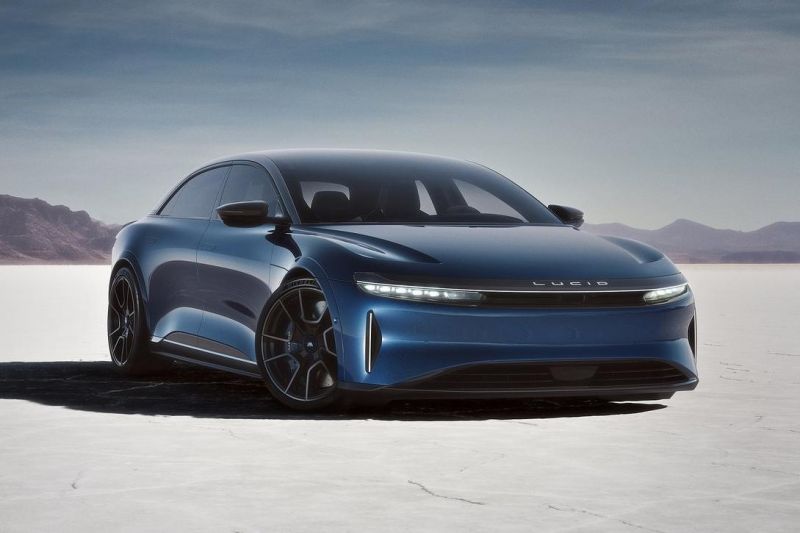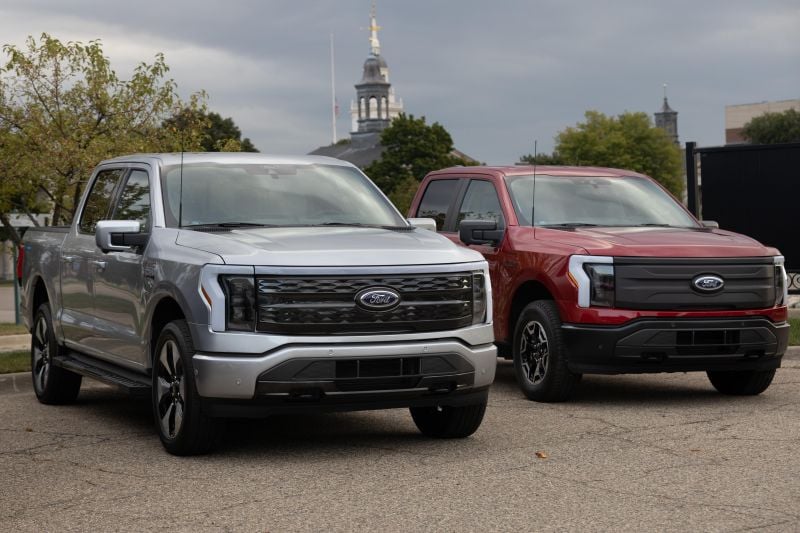Lucid Motors will let good electric car samaritans share their battery charge with other EV owners, thanks to new vehicle-to-vehicle (or RangeXChange) technology.
The feature will be available for Lucid Air customers in the United States, thanks to an over-the-air update that unlocks the functionality.
Anyone who wants to charge their cars using the new technology will also need to buy an adaptor, which plugs into the vehicle’s charge port.
The RangeXChange bi-directional charging technology allows energy to flow from the Lucid Air’s battery pack to charge another electric vehicle at a rate of up to 9.6kW.
Lucid claims depending on the vehicle it can add up to 38-64km of range per hour if the charge rate peaks at 9.6kW.
The charging adapter will be available to purchase later this month through Lucid.
Lucid offers the air in four variants with a choice of either single, dual, or tri-motor powertrains.
The Lucid Air Pure guise has the option of either single-motor rear-drive or dual-motor all-wheel drive. The single-motor powertrain produces 320kW of power, while the dual-motor produces 357kW. The range is estimated at 590km for the AWD model.
The Air Touring has a dual-motor powertrain which produces 462kW and has a claimed range of 580km.
Both the Pure and Touring models have a 94kWh lithium-ion battery pack and an 800V architecture. They can be charged using DC power at 200kW to go from 10-80 per cent in 25 minutes.
The Lucid Air Grand Touring uses a 114kWh lithium-ion battery pack and has a 800V architecture. It can support DC fast charging up to 300kW and takes 33 minutes to charge from 10 to 80 per cent. It has a claimed 665km of range.
The dual-motor setup produces 597kW and 1200Nm which powers all-four wheels.
The Air Sapphire sedan packs three motors – two on the rear axle, one on the front – to deliver more than 895kW of power, and a 0-97km/h (60mph) sprint time below two seconds.
That puts it in line with the Tesla Model S Plaid (1.98 seconds), and makes it at least 0.6 seconds faster than the previous Lucid Air performance flagship.
Earlier this year, Tesla said it was working on a bi-directional charging, however CEO Elon Musk says he doesn’t think it will be something people will use.
The company says it’s in the middle of a power electronics retool, with Drew Baglino, Tesla’s senior vice president of powertrain and energy engineering, saying it will “bring that functionality to all of our vehicles over the next two years”.
Bidirectional charging encompasses different features like vehicle-to-load, vehicle-to-home and vehicle-to-grid, referred to as V2L, V2H and V2G respectively.
The Ford F150 Lightning and Chevrolet Silverado EV are among other electric vehicles which offer V2V capabilities.

